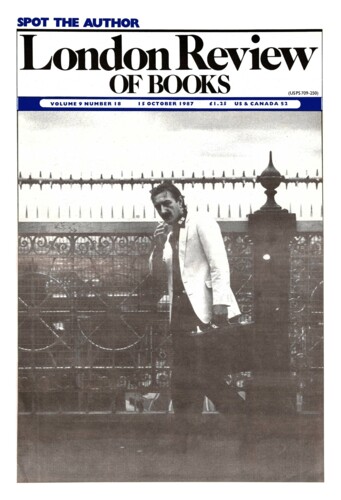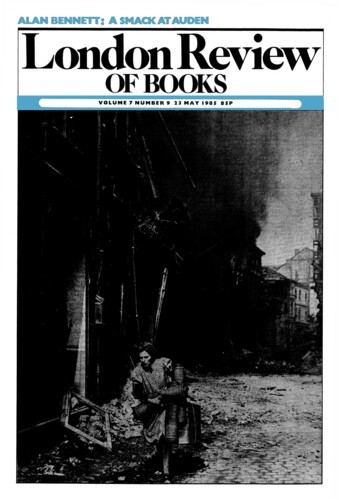The Kentish Hog
Adrian Desmond, 15 October 1987
David Kohn opens his monumental Darwinian Heritage with a deftly-delivered kick, observing that a study of the wider institutional culture of Darwin’s day seems to be ‘beyond the present ken of historians of 19th-century biology’. It’s a well-aimed blow. Little of the Darwin industry’s capital has been spent on exploring evolution in its social context. It isn’t that the subject is taboo (as it was a generation ago), just that the pioneering work of the textual analysts scrutinising Darwin’s notebooks has dominated the scene of late – and rightly so, given their immense contribution to our understanding of the route Darwin took to natural selection.’


